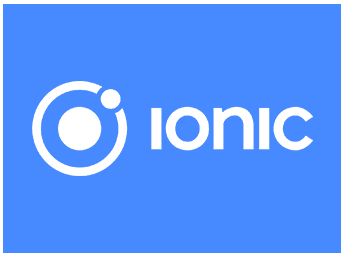Mike is a millennial who wakes up every morning with the vibration of his smartwatch, order breakfast from the Zomato app and rush to book a taxi to reach the office. It is a truth that everyone today is leading a mobile application savvy life to make things easier. To survive in this Darwinian digital world, your business will need to deliver exactly what the customer needs. To respond to the ever-changing consumer requirements, your business should be accessible by modern society devices – smartphones.
There are some budget barriers for native development because different platforms have different coding needs. But now, the best cross-platform frameworks for Mobile app development can be used to develop the application for Android and iOS.
Outlined Upsides of Cross-Platform Mobile app development Frameworks
Emerging technology to build engaging hybrid apps is changing the way you deal with businesses today! It is enhancing mobility in our everyday routine. Let’s have a look at the basic fundamentals of cross-platform mobile app development.
Code Reusability
One time coding and you are done. It eliminates the repetitive coding task for different platforms.
Fast Development Time
To develop a single codebase for multiple platforms can cut down development time and efforts by 60-80 %. You can build intuitive and rich mobile applications in less time.
Reduced Cost
In cross-platform mobile app development, fewer resources and time are involved which helps to save costs.
Easy Integration
The cross-platform framework allows for cloud integration with the help of hosting services. A hybrid app means the business app can take the fits of all cloud hosts.
Easy Maintenance
It is easy to maintain a single source code with the help of updated packages.
Check out the best cross-platform mobile app development frameworks below:
React Native

React Native is a trusted development framework launched by Facebook in 2018. It has large open-source community support which allows fixing bugs easily. This technology features lightning-fast performance and the codes are highly reusable. React is written in Javascript which is the most popular programming language and has huge community support.
Features
- High compatibility with third-party plugin
- Declarative API to build predictive UI
- Inbuilt library of components
Flutter

Google introduced Flutter cross-platform framework in 2017. This development kit is designed to assist in the development of Android and iOS apps. Flutter apps can easily execute on multiple platforms uniformly. It allows the developer to refresh and see instant changes made through the hot reload features. It makes the development process in Flutter fast and easy. You can use inbuilt motion APIs, Cupertino widgets, design material to provide a great mobile app user experience. Google Ads, Alibaba eCommerce, and Hamilton Musical use the Flutter framework.
Features
- Easy and quick development
- Reduced the testing efforts
- Strong support of widgets
- Inbuilt Cupertino widgets and material design
Xamarin

Xamarin is .Net based app development framework launched by Microsoft. Being open-source and cross-platform, it offers a development environment with API, backend, components, and much more. Developers can build native apps for iOS, Android, Windows, MacOS, TvOS, and Watch OS using C# and .Net in this platform. Worldwide enterprises and businesses rely upon the .Net framework. You can share 75% of code across various platforms here, which makes the development process faster.
Features
- Versatile back-end structure
- Diagnostic tools and application loader
- Google emulator management
- Strong community contributors
Ionic

Ionic is an open-source framework for front-end development. It is based on React and Angular JS. Developers can access HTML syntax to add attractive features. Ionic makes use of Cordova plug-ins that are compatible with most of the standard app APIs like GPS, camera, audio recorder, etc. It is mostly used to build progressive and interactive web applications. Ionic Studio is a powerful lightning version of Ionic. Install it on your local device to easily visualize the development ecosystem.
Features
- Stable and powerful development platform
- Intuitive UI components and fast development
- Complete control of app development
- Evergreen developer’s community(+5 Million)
Node.Js

Node.JS is a powerful open-source framework built on Javascript. It is a back-end technology that can be used with React Native for cross-platform mobile app development and can handle multiple processes at a time. It provides server-side and networking app development. Inherently the platform is highly responsive and efficient. The framework is loaded with a rich library of Javascript modules to simplify the development process. It delivers perfect and smooth functioning apps. You can move across the API asynchronously without waiting for the data.
Features
- Huge inbuilt library support
- Fast execution
- Reliable and impressive performance
- APIs is asynchronous
If you are a NodeJS developer and want to improve your development game, then feel free to navigate this blog- 5 Tips to Accelerate Your Node.js Development Process.
Conclusion
Mobile application development has evolved from single platform applications to cross-platform applications. With these evolutions, the development trend has witnessed a great shift in script, code, integration, development, platforms, and deployment. we have gone through the best cross-platform frameworks for mobile app development. It’s important to select the right mobile app framework for your project.
Originally Posted at - https://appwrk.com/blog/best-5-cross-platform-frameworks-for-mobile-app-development/







Top comments (1)
Yes, it's really interesting and useful. Cross-platform frameworks offer an interesting solution, allowing you to do app development for different platforms with common code.